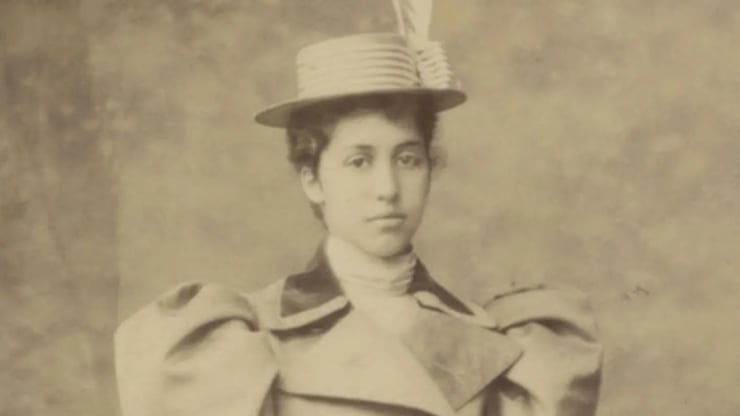A Princess's Journey: The Early Life Of Sophia Duleep Singh

Sophia Jindan Alexandrovana Duleep Singh, was the granddaughter of Maharaja Ranjit
Singh, a significant ruler of the great, powerful and immensely wealthy kingdom of Punjab.
She was the daughter of the exiled Maharaja Duleep Singh and Maharani Bamba, the
illegitimate daughter of a German banker and Ethiopian slave, which gave Sophia a complex
heritage.
Sophia was born in an aristocratic environment at Elveden hall in England on 8th August
1876, and was christened with names reflecting her rich heritage and connections. Sophia
was named after her enslaved Ethiopian maternal grandmother. Her middle name, Jindan,
after her paternal grandmother, Maharani Jindan Kaur, and Alexandrovna, after her
godmother Queen Victoria.
Sophia was the fifth of her siblings, with two elder brothers, Victor and Frederic, and two
elder sisters, Bamba and Catherine. She had one younger brother, Edward, with whom she
shared a close bond.
However, after one year of Sophia’s birth, family tensions arose. Her father began delving
into his past, questioning whether Queen Victoria and her imperial agents had taken
advantage of him, when he was a child. As time went on, he grew increasingly resentful
towards the British Empire and started spending much of his time in London, away from his
family, questioning and plotting. This frustration led him to drink, leaving Sophia’s mother
lonely and facing ostracism.
In the neglected environment, Sophia had become very close to her governess, Miss Date,
who made sure to protect her from the worst of tensions. Sophia had started spending time
outdoors, talking to the kennel keepers, learning how to breed and rear dogs and to ride a
pony; in her later years, she became a fearless horse rider. Growing up, Sophia found her
greatest joy outdoors, surrounded by animals.
In 1886, Sophia’s defeated father, decided to leave London. He sold everything and in 1887
left with his family for India on SS Verona. All seemed to be going well, but once Duleep
Singh left England, the British government’s attitude changed and on the 12th of April 1887,
the Maharaja was stopped at Aden and arrested along with his family on the orders of the
Viceroy of India. After two weeks of their arrest, heartbroken Duleep Singh was forced to
sail his family back to England and weeks later, he left for Paris with another hope to regain
his empire.
Ten-year-old Sophia reached London with her family, and Queen Victoria hired Arthur
Oliphant to look after Duleep’s family and report their every move to the Palace. Temporary
arrangements were made by Arthur, and a suite was prepared for the family in one of
London’s grandest hotels. Meanwhile, Queen Victoria would send gifts for the family and
once sent a doll to Sophia who cherished it throughout her life.
Later Arthur decided to move the family into his own house in the coastal town of Folkestone
in Kent, where, he arranged young Miss Lina Schaeffer as their governess. Shortly after
moving to Folkestone, Sophia fell ill and was diagnosed with typhoid fever.
The frail and diabetic Maharani Bamba, was tending to her daughter day and night and on 18th
September 1887, she was found dead next to Sophia’s bed. A simple funeral was held for her
at St Andrew’s Church, which was across the road from their old home, ‘Elveden Hall’.
Maharaja Duleep Singh could not attend the funeral.
After the funeral, Arthur struggled to make decisions about the children, so he brought them
back to Folkestone. There, education was arranged for Sophia’s elder brothers and sisters.
However, to distance Sophia from the memories of her mother, Arthur relocated her to
Brighton, where she was enrolled in a nearby girls’ day school and her brother Edward was
sent to boarding. This separation was tough for the children, but they promised to write to
each other regularly. Edward would often write to Sophia but his constant reports of suffering
from ill health became a source of concern.
In 1893, Sophia received a letter about Edward’s illness. What began as a cold had escalated
into pneumonia and then tuberculosis, with swelling in his stomach. He was soon sent home.
On Victor’s appeal to the Palace, Sophia’s father was allowed to visit for three days. A week
after Duleep’s return, on May 1st, 1893, thirteen-year-old Edward passed away. He was laid
to rest next to his mother, Maharani Bamba, at St. Andrew’s Church.
Sophia's father, upon returning back to Paris, was devastated and had given up his will to
live. After suffering from a massive second heart attack, he passed away on 22nd October
1893. Sophia made her third visit to Elveden Hall, where she buried her father next to her
mother and brother.
Meanwhile, in Brighton, as instructed, Arthur diligently sent reports to the Palace regarding
Sophia's academic excellence and her maturation into a refined young lady. Sophia herself
requested permission from the Palace to complete her education in Germany and embark on a
journey across Europe with her sisters. The Palace granted her request. For Arthur, this
marked the culmination of his responsibilities towards Duleep's children as their guardian and
he made last arrangements for her.
In 1893, Sophia finished her education in Germany and then travelled to Milan, Venice,
Florence, and Naples. Upon her return, she faced uncertainty about where she would live and
what she would do with her future. Despite experiencing arrests and the loss of loved ones at
a young age, Sophia felt prepared to confront the challenges ahead.
Article to be continued as part 2 which would cover the rest of Sophia’s life





